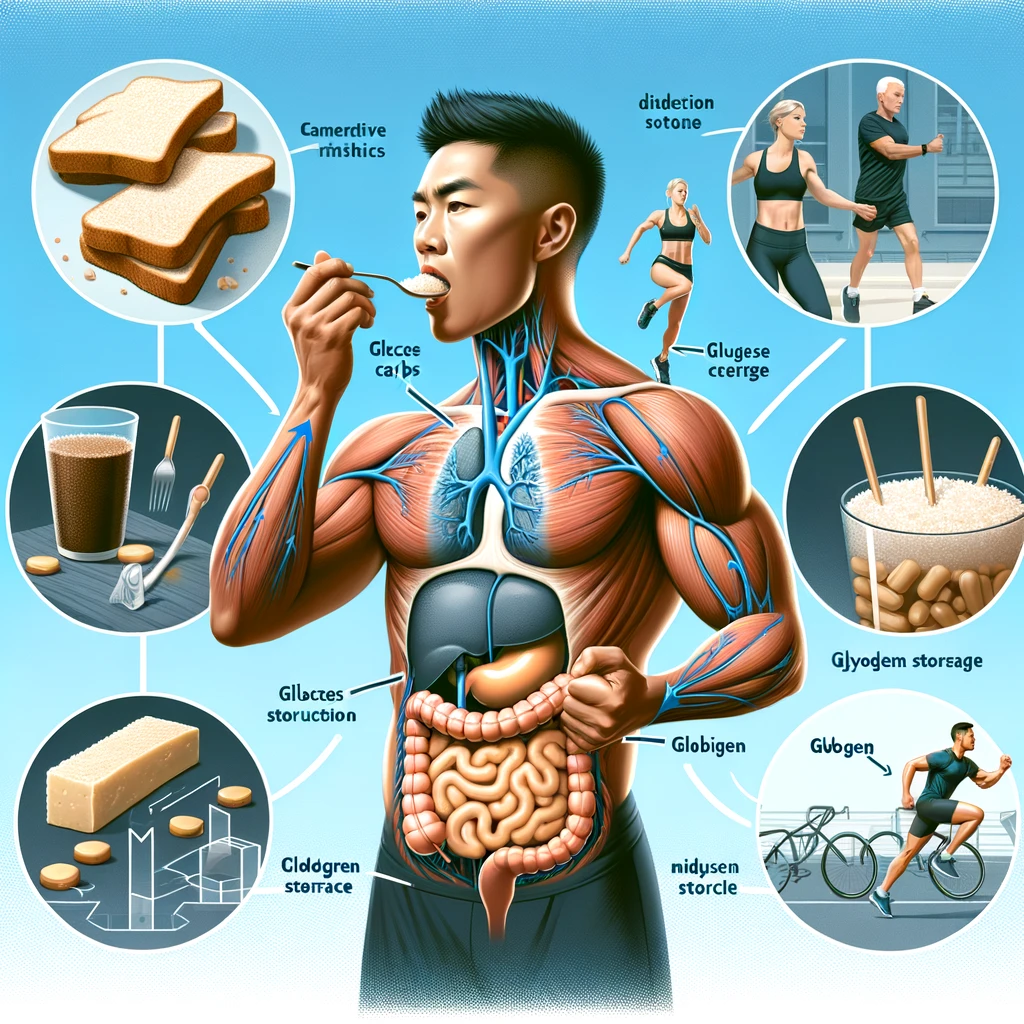Carbohydrates often get a mixed reputation in the fitness world. While some view them as a vital energy source, others see them as a hurdle in achieving fitness goals. Let's delve into the science of carbohydrates, how they affect our body fat percentage, and their role in enhancing performance.
What Happens When We Eat Carbs?
- When you consume carbohydrates, they are broken down into glucose, which is the simplest form of sugar and the primary energy source for your body. This process begins in the mouth and continues in the digestive system.
How Are Carbs Stored?
- Once glucose enters the bloodstream, it triggers the pancreas to release insulin. Insulin helps glucose enter the body's cells to be used for energy. Excess glucose is stored as glycogen in the liver and muscles for future use. When glycogen stores are full, the remaining glucose can be stored as fat.
Carbs and Body Fat Percentage
- The relationship between carb intake and body fat percentage is nuanced. It's not just about the quantity but also the quality of carbs. Whole, unprocessed carbs like fruits, vegetables, and whole grains have a different effect on the body compared to refined carbs found in sugary snacks and processed foods.
The Impact of a Carb Load
- 'Carb loading' is a strategy used by athletes to maximise glycogen stores in muscles before endurance events. By increasing carb intake a few days before an event, athletes can enhance their endurance and performance.
Carbs for Everyday Fitness
- For regular fitness enthusiasts, a balanced carb intake can improve workout performance and recovery. Carbs replenish glycogen stores, which is crucial for muscle recovery and growth.
Choosing the Right Carbs
- Opt for complex carbs over simple carbs. Complex carbs provide a more sustained energy release, keeping you full for longer and maintaining stable blood sugar levels.
Carbs and Weight Management
- Carbohydrates are not inherently fattening. It's the type and amount of carbs consumed that can impact weight. A balanced diet that includes a healthy amount of carbs can support weight management and overall health.
Conclusion Carbohydrates play a vital role in both general health and athletic performance. Understanding how they work in the body can help you make more informed dietary choices, aligning your carb intake with your fitness goals and lifestyle needs. Remember, it's about finding the right balance that works for your body.

